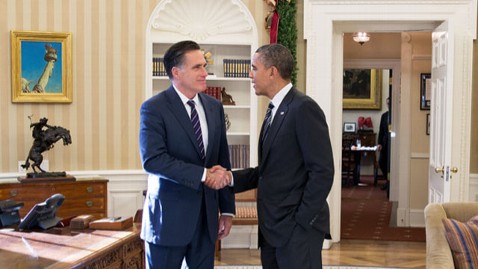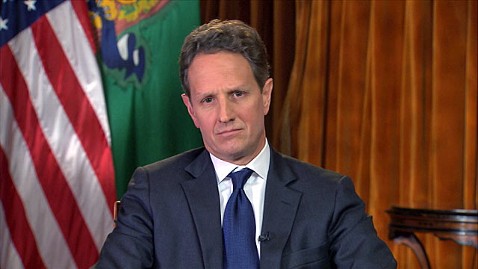NASA's Mars rover Curiosity has detected several simple carbon-based organic compounds on Mars, but it remains unclear whether they were formed via Earthly contamination or whether they contain only elements indigenous to the planet.
Speaking at the American Geophysical Union annual meeting in San Francisco, Curiosity mission leaders also said that the compound perchlorate—identified previously in polar Mars—appeared to also be present in Gale Crater, the site of Curiosity's exploration.
The possible discovery of organics—or carbon-based compounds bonded to hydrogen, also called hydrocarbons—could have major implications for the mission's search for more complex organic material.
It would not necessarily mean that life exists now or ever existed on Mars, but it makes the possibility of Martian life—especially long ago when the planet was wetter and warmer—somewhat greater, since available carbon is considered to be so important to all known biology.
(See "Mars Curiosity Rover Finds Proof of Flowing Water—A First.")
The announcements came after several weeks of frenzied speculation about a "major discovery" by Curiosity on Mars. But project scientist John Grotzinger said that it remains too early to know whether Martian organics have been definitely discovered or if they're byproducts of contamination brought from Earth.
"When this data first came in, and then was confirmed in a second sample, we did have a hooting and hollering moment," he said.
"The enthusiasm we had was perhaps misunderstood. We're doing science at the pace of science, but news travels at a different speed."
Organics Detected Before on Mars
The organic compounds discovered—different combinations of carbon, hydrogen, and chlorine—are the same or similar to chlorinated organics detected in the mid-1970s by the Viking landers.
(Related: "Life on Mars Found by NASA's Viking Mission?")
At the time, the substances were written off as contamination brought from Earth, but now scientists know more about how the compounds could be formed on Mars. The big question remains whether the carbon found in the compounds is of Martian or Earthly origin.
Paul Mahaffy, the principal investigator of the instrument that may have found the simple organics—the Sample Analysis at Mars (SAM)—said that while the findings were not "definitive," they were significant and would require a great deal of further study.
Mahaffy also said the discovery came as a surprise, since the soil sample involved was hardly a prime target in the organics search. In fact, the soil was scooped primarily to clean out the rover's mobile laboratory and soil-delivery systems.
Called Rocknest, the site is a collection of rocks with rippled sand around them—an environment not considered particularly promising for discovery. The Curiosity team has always thought it had a much better chance of finding the organics in clays and sulfate minerals known to be present at the base of Mount Sharp, located in the Gale Crater, where the rover will head early next year.
(See the Mars rover Curiosity's first color pictures.)
The rover has been at Rocknest for a month and has scooped sand and soil five times. It was the first site where virtually all the instruments on Curiosity were used, Grotzinger said, and all of them proved to be working well.
They also worked well in unison—with one instrument giving the surprising signal that the minerals in the soil were not all crystalline, which led to the intensive examination of the non-crystalline portion to see if it contained any organics.
Rover Team "Very Confident"
The simple organics detected by SAM were in the chloromethane family, which contains compounds that are sometimes used to clean electronic equipment. Because it was plausible that Viking could have brought the compounds to Mars as contamination, that conclusion was broadly accepted.
But in 2010, Chris McKay of NASA's Ames Research Center and Rafael Navarro-Gonzalez of the National Autonomous University of Mexico published an influential paper describing how dichloromethane can be a byproduct of the heating of other organic material in the presence of the compound perchlorate.
They conducted the experiment because NASA's Phoenix mission had discovered large amounts of perchlorate in the northern polar soil of Mars, and it seems plausible that it would exist elsewhere on the planet.
"In terms of the SAM results, there are two important conclusions," said McKay, a scientist on the SAM team.
"The first is confirming the perchlorate story—that it's most likely there and seems to react at high temperatures with organic material to form the dichloromethane and other simple organics."
"The second is that we'll have to either find organics without perchlorates nearby, or find a way to get around that perchlorate wall that keeps us from identifying organics," he said.
Another SAM researcher, Danny Glavin of Goddard, said his team is "very confident" about the reported detection of the hydrocarbons, and that they were produced in the rover's ovens. He said it is clear that the chlorine in the compounds is from Mars, but less clear about the carbon.
"We will figure out what's going on here," he said. "We have the instruments and we have the people. And whatever the final conclusions, we will have learned important things about Mars that we can use in the months ahead."
Author of the National Geographic e-book Mars Landing 2012, Marc Kaufman has been a journalist for more than 35 years, including the past 12 as a science and space writer, foreign correspondent, and editor for the Washington Post. He is also author of First Contact: Scientific Breakthroughs in the Hunt for Life Beyond Earth, published in 2011, and has spoken extensively to crowds across the United States and abroad about astrobiology. He lives outside Washington, D.C., with his wife, Lynn Litterine.

















